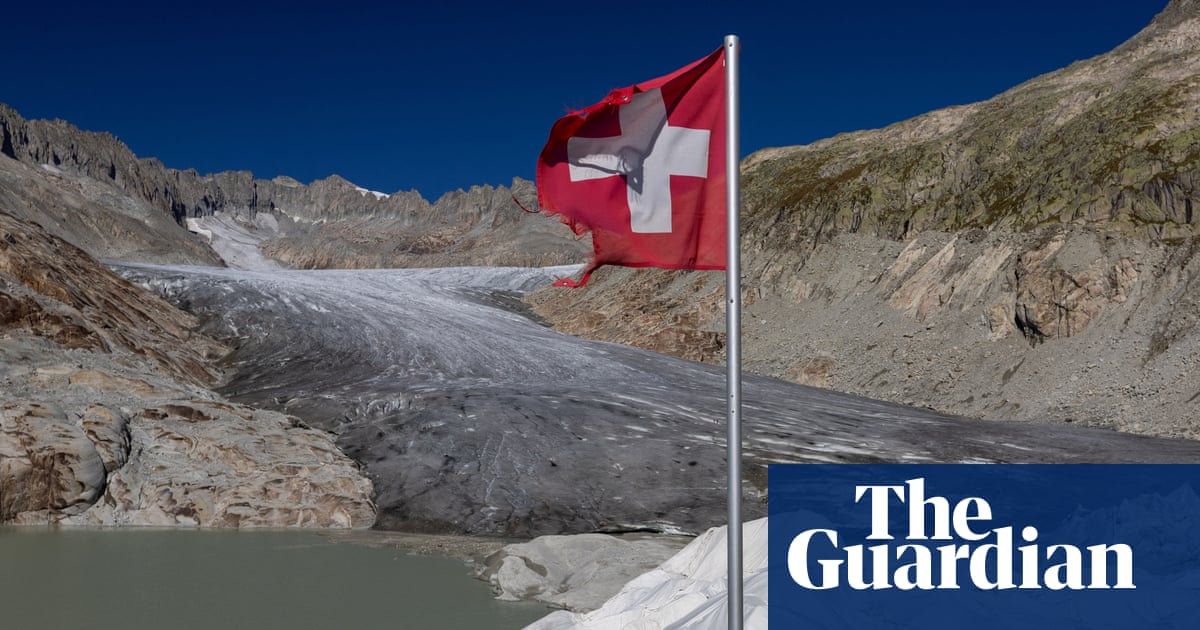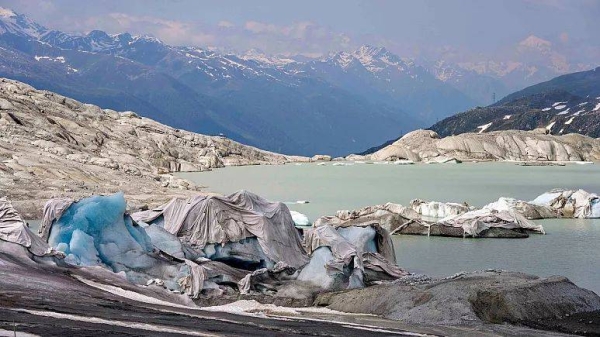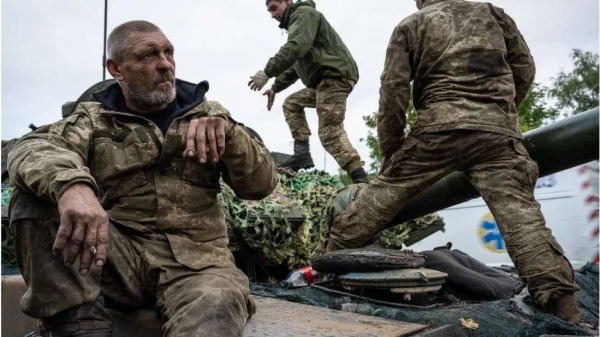
Swiss glaciers have lost 10% of their volume in just two years, a report has found.
Scientists have said climate breakdown caused by the burning of fossil fuels is the cause of unusually hot summers and winters with very low snow volume, which have caused the accelerating melts. The volume lost during the hot summers of 2022 and 2023 is the same as that lost between 1960 and 1990.
The analysis by the Swiss Academy of Sciences found 4% of Switzerland’s total glacier volume vanished this year, the second-biggest annual decline on record. The largest decline was in 2022, when there was a 6% drop, the biggest thaw since measurements began.
Experts have stopped measuring the ice on some glaciers as there is essentially none left. Glacier Monitoring in Switzerland (Glamos), which monitors 176 glaciers, recently halted measurements at the St Annafirn glacier in the central Swiss canton of Uri since it had mostly melted.
Matthias Huss, the head of Glamos, said: “We just had some dead ice left. It’s a combination of climate change that makes such extreme events more likely, and the very bad combination of meteorological extremes. If we continue at this rate … we will see every year such bad years.”
He said small glaciers were disappearing because of the rate of ice loss. In order to stop Switzerland losing its ice, emissions needed to be halted, he said, but added that even if the world managed to keep warming to 1.5C above preindustrial levels, only a third of glacier volume in Switzerland was forecast to remain.
This meant, he said, that “all the small glaciers will be gone anyway, and the big glaciers will be much smaller”. But he stressed that at least “there will be some ice in the highest regions of the Alps and some glaciers that we can show to our grandchildren”.
The Swiss Alps experienced record warmth this year. In August, the peak melt month, the Swiss weather service found that the elevation at which precipitation freezes hit a new record overnight high, measured 5,289 metres (17,350ft), an altitude higher than Mont Blanc. This exceeded last year’s record of 5,184 metres.
The mountain scenery is changing due to the melting ice. Huss has found new lakes forming next to glacier tongues for the first time on record, as well as bare rock poking from thinning ice. Bodies long lost under ice have been recovered as ice sheets have shrunk.
Swiss records mainly go back to 1960, and to 1914 for some glaciers.












